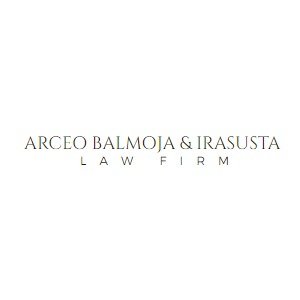Best ADR Mediation & Arbitration Lawyers in Bulacan
Share your needs with us, get contacted by law firms.
Free. Takes 2 min.
List of the best lawyers in Bulacan, Philippines
About ADR Mediation & Arbitration Law in Bulacan, Philippines
ADR, or Alternative Dispute Resolution, has become an integral part of the legal landscape in Bulacan, Philippines. This method aims to resolve disputes without litigation, making use of two main avenues: mediation and arbitration. Mediation involves a neutral third party who facilitates negotiations between the parties involved, yet does not enforce a decision. Conversely, an assigned arbitrator listens to both sides and makes a binding decision. Both processes are more flexible, private, and often cost-effective as compared to traditional court proceedings.
Why You May Need a Lawyer
Engaging a lawyer who specializes in ADR is essential in a myriad of situations. If you're engaged in a business dispute, family disagreement, or civil matters that could potentially lead to a court trial, an ADR lawyer can facilitate resolution saving you time, money, and emotional distress. Expert lawyers can also aid in the process of drafting and reviewing mediation or arbitration agreements ensuring your rights and interests are adequately protected.
Local Laws Overview
The legal basis of mediation and arbitration in the Philippines, including Bulacan, is established under the Alternative Dispute Resolution Act of 2004 (Republic Act No. 9285). The law conforms to the Model Law on International Commercial Conciliation adopted by United Nations Commission on International Trade Law. These laws emphasize voluntary participation, confidentiality, and the enforceability of settlements.
Frequently Asked Questions
1. Is ADR mandatory before proceeding to court?
Not always. However, some types of cases such as labor disputes and environmental cases may require ADR processes before a court trial can be scheduled.
2. Is the process confidential?
Yes, one of the main strengths of ADR processes is the guarantee of confidentiality for the parties involved, promoting open and honest negotiations.
3. Are the decisions in ADR binding?
In mediation, decisions are non-binding unless the parties agree to a settlement. In arbitration, the decision of the arbitrator is usually binding and enforceable by the court.
4. Can I appeal the arbitration decision?
Arbitration decisions can be appealed under certain circumstances, although the grounds for appeals are typically very narrow.
5. How much does an ADR process generally cost?
The cost for ADR varies widely depending on the complexity of the case, the ADR provider used, and the qualifications of the mediator or arbitrator.
Additional Resources
You can consult the Philippines Dispute Resolution Center, Inc. (PDRCI), the Arbitration Center of the Philippines Chambers of Commerce, and the Office for Alternative Dispute Resolution for informational resources, service provisions, and guidance about ADR.
Next Steps
If you believe you need legal assistance in ADR mediation and arbitration in Bulacan, the first step is to seek counsel from a qualified lawyer in this field. Make sure to gather all relevant documents and information related to your case. A good lawyer will guide you through the process, protect your rights, and help you reach the best possible resolution for your situation.
Lawzana helps you find the best lawyers and law firms in Bulacan through a curated and pre-screened list of qualified legal professionals. Our platform offers rankings and detailed profiles of attorneys and law firms, allowing you to compare based on practice areas, including ADR Mediation & Arbitration , experience, and client feedback.
Each profile includes a description of the firm's areas of practice, client reviews, team members and partners, year of establishment, spoken languages, office locations, contact information, social media presence, and any published articles or resources. Most firms on our platform speak English and are experienced in both local and international legal matters.
Get a quote from top-rated law firms in Bulacan, Philippines — quickly, securely, and without unnecessary hassle.
Disclaimer:
The information provided on this page is for general informational purposes only and does not constitute legal advice. While we strive to ensure the accuracy and relevance of the content, legal information may change over time, and interpretations of the law can vary. You should always consult with a qualified legal professional for advice specific to your situation.
We disclaim all liability for actions taken or not taken based on the content of this page. If you believe any information is incorrect or outdated, please contact us, and we will review and update it where appropriate.










